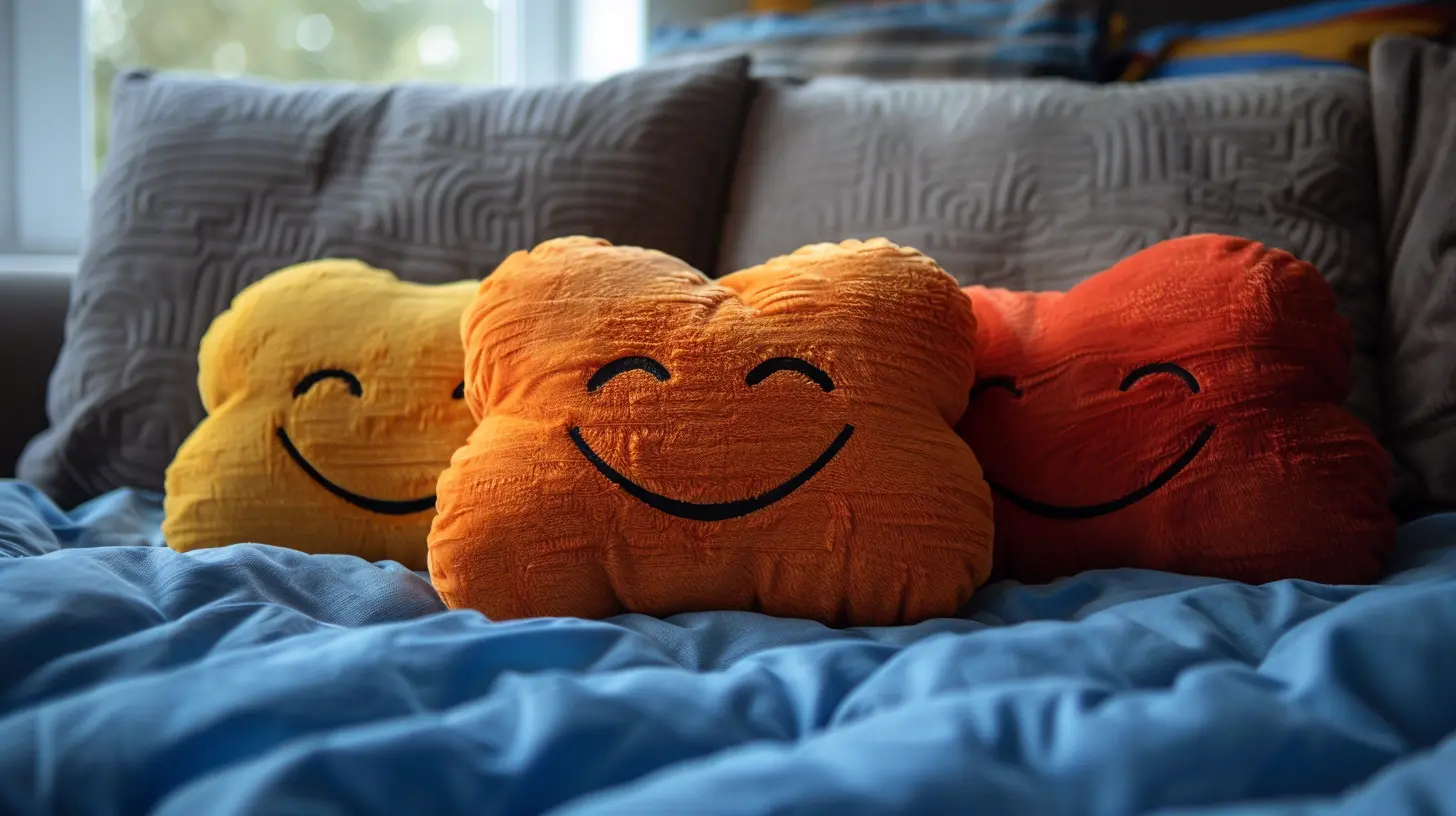How Sleep Impacts Mental Health and Illness
24 July 2025
Let’s be real—sleep isn’t just that cozy thing we do after a long day. It’s not some optional bonus time where we shut down and recharge like a phone. Nope. Sleep is a non-negotiable necessity for both your body and your mind. And when it comes to mental health? Oh boy, the relationship between sleep and your emotional well-being runs deep.
In this article, we’re going to dive headfirst into how sleep impacts mental health and illness. We’ll talk about why your brain straight-up rebels when you skimp on shut-eye, and how improving your sleep could actually help you feel more emotionally balanced, focused, and resilient. Sound good? Let’s get into it.
Why Does Sleep Even Matter for Mental Health?
You know how everything looks ten times worse when you’re sleep-deprived? There’s a good reason for that. Sleep literally acts like your brain’s emotional housekeeping service. While you’re snoozing, your brain is sorting through your feelings, processing memories, and regulating your mood.If you don’t sleep enough—or the sleep you get is bad quality—this whole process gets out of whack. And when your brain can’t do its nightly cleanup, it’s like trying to function in a room full of clutter. You feel scattered, anxious, irritable, and honestly, just not yourself.
The Science Behind Sleep and the Brain
Okay, so here’s a quick science pit stop—no lab coat required.There are two main types of sleep you cycle through each night:
1. Non-REM sleep: This includes your deep sleep, where your body heals and recovers.
2. REM sleep: This is where dreams happen, and your brain processes emotions and memories.
During REM, your brain is incredibly active, even though your body is in rest mode. It’s like your mental health is getting a software update overnight. Miss out on that and your brain doesn’t get a chance to restore emotional balance.
Now imagine this happening every night. Sleep deprivation starts compounding, and that’s when things really begin to unravel.
Mental Health Conditions That Are Impacted (or Caused) by Poor Sleep
Let’s talk specifics. Poor sleep isn’t just about feeling tired. It can either trigger or worsen various mental health conditions. Here's a look at some of the heavy hitters:1. Anxiety Disorders
Ever lay in bed and your mind won’t shut up? That racing heart, the spiraling thoughts? Lack of sleep fans the flames of anxiety.When you don’t sleep well, your brain’s “fight or flight” system stays on high alert—even when there’s nothing to worry about. Your emotional brain (the amygdala) goes into overdrive while the logical part (the prefrontal cortex) goes offline. That’s a recipe for panic, overthinking, and stress.
2. Depression
Here’s the twist: depression and sleep problems often have a chicken-and-egg relationship. Poor sleep can cause depression, but depression can also mess with your sleep. It’s a vicious cycle.People with insomnia are up to 10 times more likely to develop depression. And even those who do get some sleep might not reach the deep, restorative stages they need, leaving them mentally and emotionally drained.
3. Bipolar Disorder
Sleep plays a huge role in regulating mood, so it’s no surprise that it affects bipolar disorder. Lack of sleep can actually trigger manic episodes—where a person feels overly energetic, impulsive, or euphoric. On the flip side, oversleeping or poor-quality sleep can worsen depressive episodes.Bipolar disorder is all about mood balance, and without healthy sleep, that balance is much harder to maintain.
4. ADHD
Sleep and ADHD are in a complicated relationship. Many people with ADHD have serious trouble falling or staying asleep. And poor sleep just amps up the symptoms—like inattention, impulsivity, and emotional reactivity.It becomes a loop: bad sleep makes ADHD worse, and ADHD makes it harder to sleep. Managing sleep habits is crucial for anyone dealing with attention issues.
5. PTSD (Post-Traumatic Stress Disorder)
People with PTSD often experience nightmares, insomnia, or disrupted sleep. And that poor sleep further intensifies trauma responses during the day. It’s like the trauma carries over into the night, robbing you of the rest your brain desperately needs.Improving sleep quality can drastically reduce the intensity and frequency of these symptoms.
Sleep Deprivation: What Happens to Your Mind?
Still wondering what really goes down when you don’t sleep enough? Here’s what starts to fall apart:- Emotional regulation tanks—you cry at cat videos, get snappy at little things, or feel totally numb.
- Memory becomes foggy—you can’t remember what you ate for breakfast, let alone follow a conversation.
- Focus and decision-making go MIA—you make impulsive choices you’d never make fully rested.
- Stress response skyrockets—your cortisol levels (stress hormones) stay high, leaving you wired and tired.
- Social withdrawal kicks in—you stop reaching out and feel more isolated.
Lack of sleep is like trying to run a marathon with no training, no fuel, and shoes that don’t fit. It’s not sustainable.
Can Better Sleep Improve Mental Health?
Absolutely! The good news is that sleep is not only a problem—it can also be part of the solution.Studies show that improving sleep increases emotional resilience, reduces anxiety and depression, and even boosts therapy outcomes. It’s like sharpening your mental tools so you can handle life better.
Here’s the deal: When you sleep well, your brain can clean up emotional clutter, repair neural pathways, and regulate mood more effectively. You're not just "resting"—you’re literally rebuilding your mind.
Tips to Improve Sleep for Better Mental Health
Let’s get down to the practical stuff. Sleep hygiene isn’t some fancy term. It’s just good sleep habits. Here are a few you can start with tonight:1. Stick to a Routine
Go to bed and wake up at the same time every day—even on weekends. It trains your internal clock and makes falling asleep easier.2. Cut Off Caffeine and Screens
Avoid caffeine after 2 PM, and stop screen time at least an hour before bed. The blue light from phones messes with your brain’s melatonin production—aka your sleep hormone.3. Make Your Room a Sleep Sanctuary
Cool, dark, and quiet are the magic words. Invest in blackout curtains, a white noise machine, or even a comfy mattress. Your bed should be your sleep throne.4. Limit Naps
Power naps are okay (20-30 minutes), but long or late naps can throw off your night sleep. If you’re tired, try a short walk or a splash of cold water instead.5. Avoid Heavy Meals or Alcohol at Night
A greasy burger or a glass of wine might sound like a good idea—but both can interfere with sleep cycles. Aim for lighter meals closer to bedtime.6. Try Mindfulness or Relaxation Techniques
Deep breathing, progressive muscle relaxation, or meditation can calm your mind before sleep. Apps like Calm or Headspace can walk you through it.When to Seek Help
Sometimes, no matter what you try, sleep just doesn’t come. Or maybe you sleep plenty but still feel exhausted mentally. That’s your cue to reach out.If sleep is affecting your mental health—or vice versa—talk to a psychologist, psychiatrist, or sleep specialist. Cognitive Behavioral Therapy for Insomnia (CBT-I) is one of the most effective treatments out there. Medication might also help, but it should be guided by a professional.
Sleep shouldn’t be a nightly battle. If it feels like one, you’re not alone—and help is out there.
The Sleep-Mental Health Loop: A Two-Way Street
Let’s wrap this up with the big picture: sleep and mental health affect each other constantly. It’s a two-way street—and when one gets thrown out of whack, the other often follows.But here’s the hopeful part: improving just one of them can lift the other. Better sleep can boost your mood, and better mental health can help you rest easier. Like two halves of the same coin, they support and heal each other.
So if you’re struggling emotionally, don’t overlook your sleep. It’s not a luxury—it’s a vital part of your mental health toolkit.
Now go ahead, treat yourself to some quality zzz's. Your brain will thank you.
all images in this post were generated using AI tools
Category:
Mental IllnessAuthor:

Gloria McVicar
Discussion
rate this article
1 comments
Levi Underwood
This article succinctly highlights the crucial link between sleep and mental health. It’s a reminder that prioritizing good sleep hygiene can significantly enhance our well-being and may even mitigate certain mental health issues. Sleep isn’t just rest; it’s essential for mental health.
August 16, 2025 at 3:52 PM

Gloria McVicar
Thank you for your insightful comment! I'm glad you found the link between sleep and mental health important—it's a vital aspect of overall well-being.


